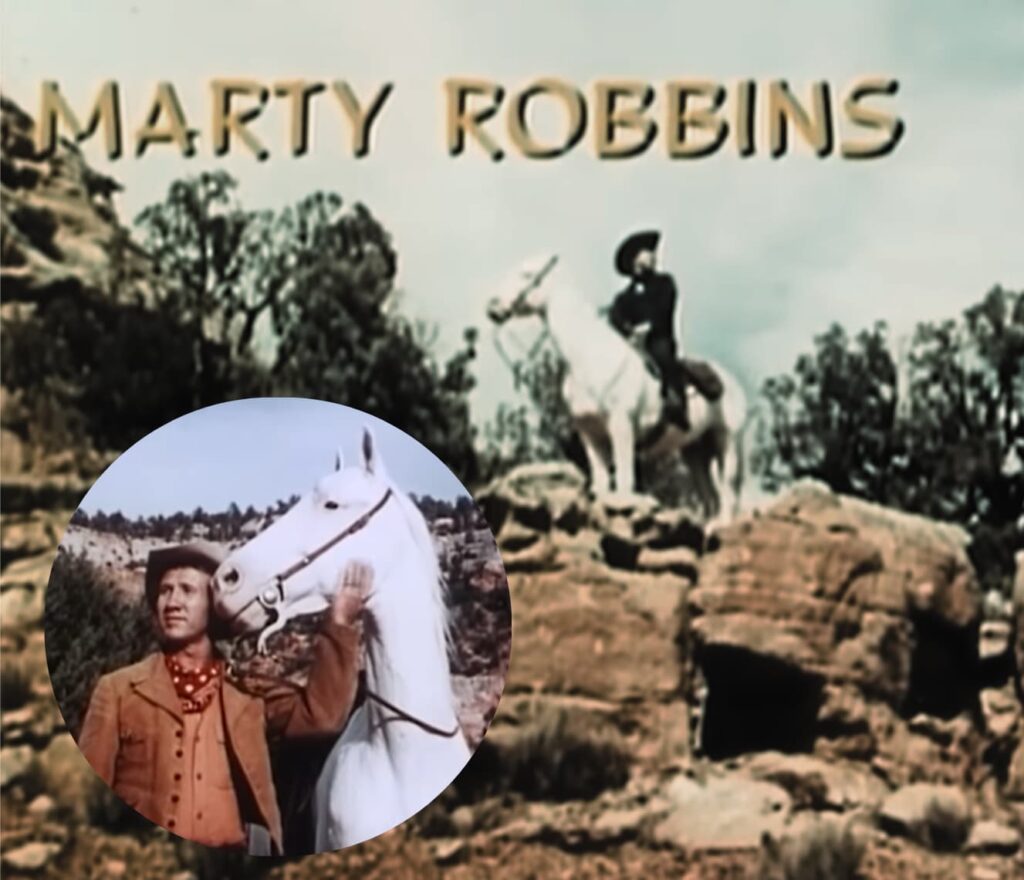
A Lonesome Echo: The Haunting Ballad of a Drifter’s Final Stand
Ah, Marty Robbins. Just hearing that name conjures up images of wide-open plains, dusty saloons, and tales spun under a sky full of stars. For many of us who remember those golden years of country music, Marty Robbins wasn’t just a singer; he was a storyteller, a balladeer whose voice could transport you to another time and place. He had a way of painting vivid pictures with his words, making you feel the grit of the West, the heartbreak of a lost love, or the tension of a looming showdown. And few songs capture that essence quite like “Tall Handsome Stranger.”
While not one of his chart-topping behemoths like “El Paso” or “Singing the Blues,” “Tall Handsome Stranger” holds a special place in the hearts of those who appreciate Robbins‘s masterful storytelling. It was originally released in 1963 on his album “Return of the Gunfighter,” a fitting title for a collection of tales steeped in the lore of the Old West. The song later saw a single release as a B-side to “Mr. Shorty” in October 1966. While “Mr. Shorty” managed to reach number 16 on the country charts, “Tall Handsome Stranger” didn’t chart independently as a single. However, its inclusion on the acclaimed “Return of the Gunfighter” album, a spiritual successor to his legendary “Gunfighter Ballads and Trail Songs,” cemented its status as a gem in his extensive catalog.
The meaning behind “Tall Handsome Stranger” is a poignant and often overlooked facet of the gunfighter ballad genre. It’s not a tale of a hero triumphing or a villain getting his just deserts in the traditional sense. Instead, it delves into the tragic, inescapable cycle of violence and vengeance that defined the American frontier. The song tells the story of a town deputy, the narrator, who is confronted by a “tall handsome stranger” seeking revenge. This stranger, with “fire in his eyes burning red as sundown,” has come for the deputy because the deputy had previously sent him to prison for a crime – killing a guard on the Santa Fe line. The tension builds as the stranger openly boasts of his intent, even claiming to have a notch already carved on his gun for the deputy.
But here’s where the story takes its heartbreaking turn, setting it apart from many of its contemporaries. As the deputy prepares for the inevitable confrontation, a sense of deep foreboding hangs in the air. He dreads the morning, wishing the stranger would simply ride away. When the fateful moment arrives at sunup, with the town gathered round “a waitin’ and watchin’ for one to go down,” the deputy is forced to draw. His shot finds its mark, and the stranger falls. The twist, the gut-punch that leaves a lingering ache, is revealed in the final verses: “The stranger’s my brother born an outlaw. He must have forgotten I taught him to draw. The whole town was waitin’ and I was alone. The blood that I spilled was just like my own. When she hears this story how mother will cry. Brother gets brother and one had to die.”
This revelation transforms the song from a simple Western showdown into a profound tragedy. It speaks to the cruel hand of fate, the impossible choices faced by those trying to uphold law and order in a lawless land, and the devastating cost of a life lived on the fringes. It’s a tale of kinship fractured by circumstance, of a bond irrevocably broken by the very skills one taught. For older listeners, it resonates with the idea that even in the pursuit of justice, there can be immense personal sorrow and an unyielding sense of loss. It reminds us that behind every bold tale of the West, there were often complex human dramas, families torn apart, and sacrifices that went far beyond the visible wounds. Marty Robbins, with his uncanny ability to weave such narratives, delivered not just a song, but a somber reflection on the unforgiving nature of a bygone era. It’s a testament to his artistry that even a “B-side” can carry such profound emotional weight, echoing long after the final note fades.